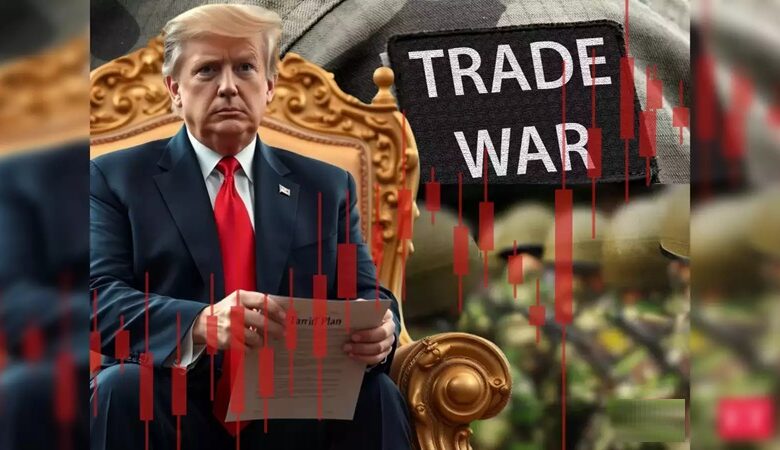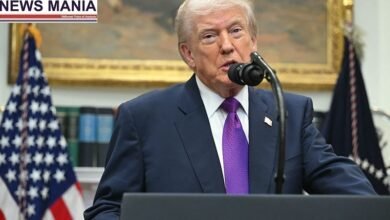Trump administration prepares US tariffs in response as trade war anxieties increase.
News Mania Desk / Piyal Chatterjee / 12th February 2025

On Wednesday, Donald Trump’s trade advisors were completing plans for the reciprocal tariffs that the U.S. president has promised to implement on every nation that imposes duties on U.S. imports, increasing concerns about an escalating global trade conflict. Trump shocked markets with his announcement on Monday to implement tariffs on all steel and aluminum imports starting March 12. The proposals faced criticism from Mexico, Canada, and the European Union, whereas Japan and Australia expressed their desire for exemptions from the tariffs.
The announcement caused industries dependent on steel and aluminum imports to rush to mitigate a forecasted rise in expenses.
Last week, Trump imposed an extra 10% tariff on Chinese products, starting February 4, while China’s counteractions will begin this week. He postponed a 25% tariff on products from Mexico and Canada for a month until March 4 to enable discussions over measures to secure U.S. borders and stop the influx of fentanyl.
Certain U.S. employees applauded Monday’s metal tariffs, yet numerous manufacturing-centric companies worried about future actions, cautioning that the increase in tariffs would have ripple effects throughout supply chains, impacting all enterprises that depend on these resources.
White House representatives have been discreet regarding the details or schedule of the upcoming tariffs, with one insider suggesting that the declaration could occur later in the week. On Monday, Trump stated he would declare reciprocal tariffs within the next two days on any nations that levy duties on American products, and mentioned he was considering individual tariffs on automobiles, semiconductors, and pharmaceuticals.
Trade specialists indicate that arranging the reciprocal tariffs desired by Trump presents significant difficulties for his team, possibly clarifying why the recent duties were not revealed on Tuesday.
Trump also could use the same International Emergency Economic Powers Act used to justify the tariffs imposed on China and pending for Canada and Mexico.
“Absent IEEPA, there would need to be some kind of agency action first before any trade remedy tariffs can be imposed … but everything seems to be on the fast track,” Pike said, adding that normally tariffs would be done by Congress.






